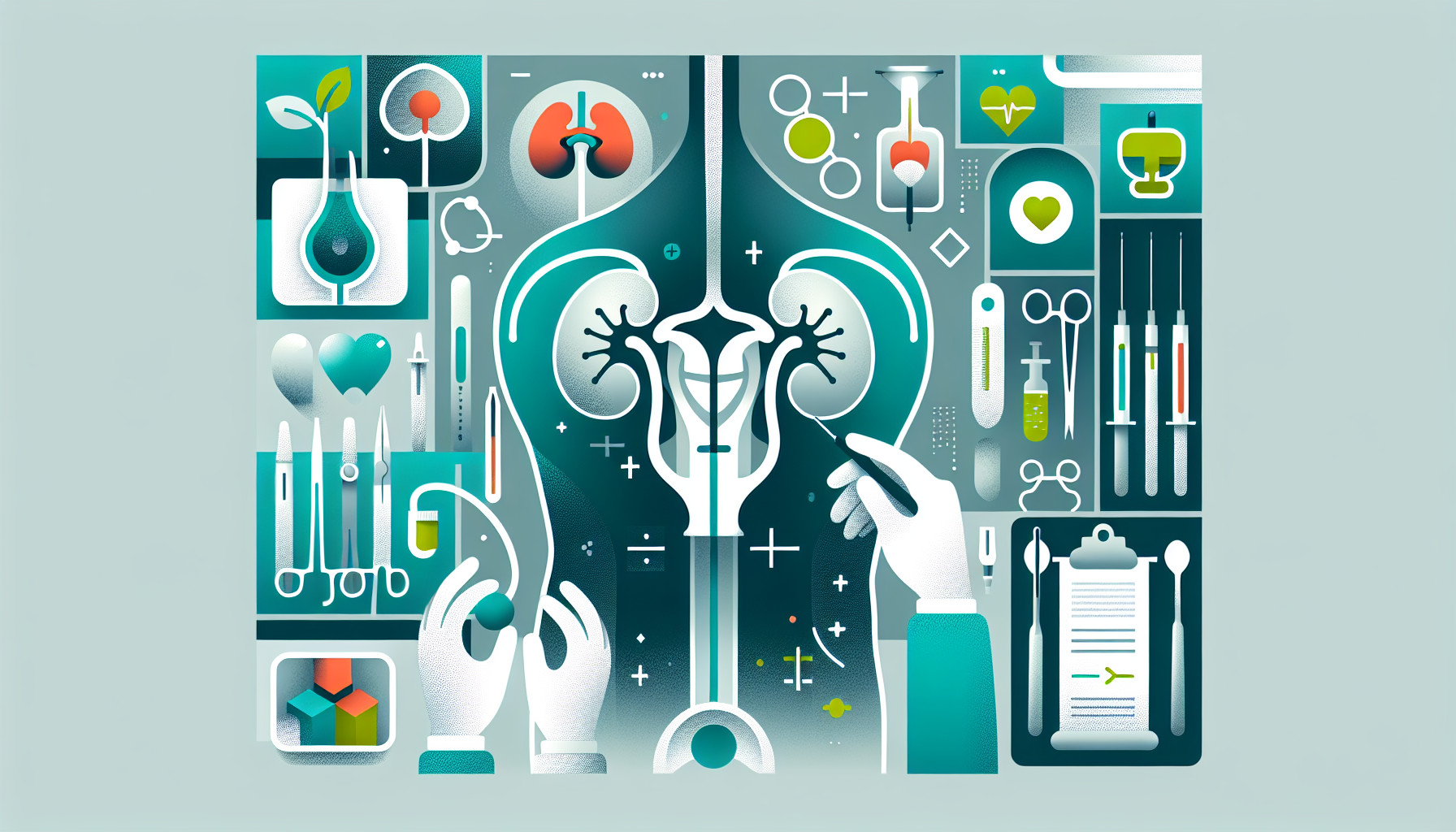Our Summary
This research paper is a review of various studies comparing two types of urinary procedures - ileal conduit (IC) and cutaneous ureterostomy (CU) - performed on elderly patients who have undergone bladder removal surgery due to cancer. The study analyzed the results of eight different research papers, which included data on 1096 patients. The results showed that CU seems to be a better option for older and more frail patients. It is associated with quicker surgeries, less blood loss, fewer blood transfusions, less need for intensive care, and shorter hospital stays. Also, fewer complications seem to occur after the CU surgery, though the death rates for both procedures are about the same. The authors suggest that more long-term studies are needed to fully understand the benefits and drawbacks of each procedure.
FAQs
- What are the two types of urinary procedures being compared in this research review?
- According to the study, what are the benefits of cutaneous ureterostomy (CU) in elderly patients?
- What is the conclusion of the study regarding the comparison of ileal conduit (IC) and cutaneous ureterostomy (CU)?
Doctor’s Tip
A helpful tip a doctor might tell a patient about ureterostomy is to ensure proper stoma care to prevent infection and skin irritation. This includes keeping the area clean and dry, changing the pouch regularly, and monitoring for any signs of irritation or infection. It is also important to stay hydrated and maintain a healthy diet to prevent any complications related to the procedure. Regular follow-ups with your healthcare provider are crucial to monitor your overall health and address any concerns or issues that may arise.
Suitable For
Patients who are typically recommended for ureterostomy procedures, such as cutaneous ureterostomy, include elderly and frail individuals who have undergone bladder removal surgery due to cancer. These patients may have comorbidities that make them higher risk for complications with more traditional urinary diversion procedures, such as ileal conduit. Ureterostomy may be recommended for patients who are not good candidates for more complex surgeries, or who may benefit from a quicker recovery time and shorter hospital stay.
Timeline
Before ureterostomy:
- Diagnosis of bladder cancer: The patient may experience symptoms such as blood in the urine, frequent urination, or pain during urination, leading to a diagnosis of bladder cancer.
- Consultation with a urologist: The patient will meet with a urologist who will discuss treatment options, including the possibility of bladder removal surgery.
- Pre-operative preparation: The patient will undergo various tests and evaluations to ensure they are fit for surgery, such as blood tests, imaging scans, and possibly a cystoscopy.
- Surgery: The patient will undergo bladder removal surgery, which may involve the creation of a ureterostomy if the bladder cannot be reconstructed.
After ureterostomy:
- Recovery in the hospital: The patient will recover in the hospital for a few days to a week after surgery, with monitoring of vital signs and pain management.
- Stoma care education: The patient will receive education on how to care for the stoma, including changing the pouching system and monitoring for any signs of infection or complications.
- Follow-up appointments: The patient will have regular follow-up appointments with their healthcare provider to monitor their stoma, overall health, and any potential complications.
- Adjustment to lifestyle changes: The patient will need to adjust to life with a stoma, including changes in diet, exercise, and activities to ensure the stoma functions properly.
- Long-term monitoring: The patient will continue to have regular check-ups and monitoring to ensure the stoma remains healthy and to address any issues that may arise.
What to Ask Your Doctor
- What is the difference between ileal conduit and cutaneous ureterostomy procedures?
- What are the potential risks and complications associated with ureterostomy surgery?
- How long is the recovery period after a ureterostomy procedure?
- What lifestyle changes or adjustments will be necessary after the surgery?
- Will I need any additional treatments or medications following the procedure?
- How often will I need to follow up with my doctor after the surgery?
- Are there any specific dietary restrictions I should be aware of after the surgery?
- What can I expect in terms of long-term outcomes and quality of life following a ureterostomy procedure?
- Can you provide me with information on support groups or resources for individuals who have undergone a ureterostomy procedure?
- Are there any alternative treatment options to consider before proceeding with a ureterostomy surgery?
Reference
Authors: Korkes F, Fernandes E, Gushiken FA, Glina FPA, Baccaglini W, Timóteo F, Glina S. Journal: Int Braz J Urol. 2022 Jan-Feb;48(1):18-30. doi: 10.1590/S1677-5538.IBJU.2020.0892. PMID: 33861058
